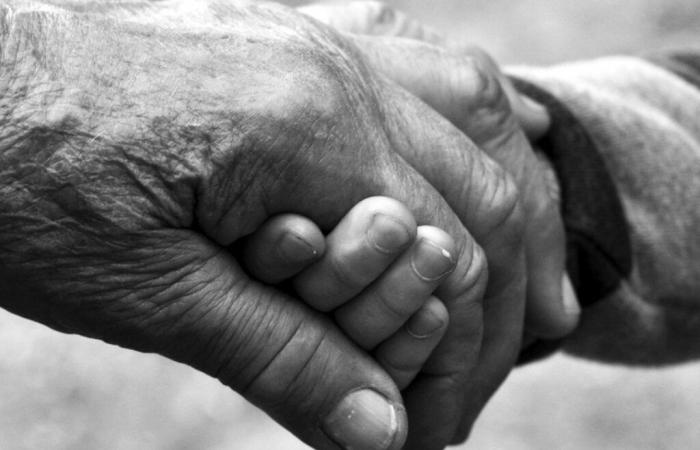While the bill ” relating to the right to die »Will be examined in the National Assembly from May 12, Jean Gauthier, revival cardiologist and cellular therapy researcher [1]denounces the lack of palliative care and insists on the need to strengthen the family unit to accompany the end of life. He invites caregivers and caregivers not to give in to “waste culture”.
You have been confronted directly, in the professional and family sphere, with the question of euthanasia. Has your experience have changed your convictions?
Jean Gauthier: I was first confronted with euthanasia by my father, which I admired a lot, and who asked me. I said a difficult yes, even if the act struck me. It was a passive euthanasia, with high -dose morphine. I did it and I regretted it: first because it was not my conviction as a doctor, and also because I might remove him with important days and hours for him. Sometimes a door opens at the last moment. Twenty years later, I have the same regret for having done it. For the second, it was my mother, suffering from cancer that had disabled her: I did not do it. Finally, a few years later, my first, hyperalgic wife asked me to stop her curative treatment. As a doctor, we are on the front line. However, in the bill, the doctor will be even more alone to decide (cf. the “help to die” qualified as “natural death”: the “semantic lie” pushed “even further”). While the evidence is there: the more we go up in palliative care, the less we will have requests for “helping to die”.
The French situation in terms of palliative care is precarious. How do you look at this reality as a doctor?
JG : I closely scrutinized the palliative care figures in France: the Court of accounts estimates that the French who need it, the WHO posed an estimate of 450,000, when the Directory of the 2023 ministry speaks of 150,000 effective care (cf. Palliative care: new beds, but still insufficient in the face of demand). If we project ourselves with the WHO criteria, the needs will extend: in 2050, 1 million French people will need, against only 500,000 care, if we continue on our line. This half of the people, for whom the public system can do nothing, can be accompanied at home. Teams will have to train around the attending physician, with of course more association relays. But the main problem is families, on which expectations will rest more and more. Today, the nuclear family exists less: relatives are far from each other. She will have to get closer, communicate more, mutualizes her action. The state is not aware of it, but it is the strengthening of the family nucleus with patients who will be the solution.
Do the French closely affected by disability not already experience?
JG : Those who face disability live something premonitory: on the one hand, families are not prepared for what happens to them, on the other hand, the difficulty of assuming the charge is very difficult for single -parent families. As for large families, they are not necessarily well organized: this is where the State should intervene more importantly. We don’t need a law, but a budget! (Cf. Claire Fourcade: Since June, “there has not been a single patient or a single family who asked me where this bill was”) The family will become even more helpful, and for that, they would need to be an employee. The state does it in certain situations, but over short periods. Unfortunately, patients at the end of their lives, or people with disabilities, cannot block highways, put manure in front of the prefectures … At the time of budgetary restrictions, the adjustment variable is them.
How did you perceive the attitude of families, during hospitalizations or end of life, with your patients?
JG : Many of my patients, with heart failure, were re-hospitalized regularly, and I attended all kinds of situations: the family circle which gradually reinforces around the patient, and carefully prepares the return home, or, on the contrary, progressive disinterest, complicated return, discouragement of loved ones. I knew patients who embodied the theory of waste: seeing that the family encountered difficulties to follow, or expressed an inconvenience, they were psychologically let go (cf. end of life: “Euthanasia will never treat solitude, neither despair, nor suffering”). For many, the demand for euthanasia is linked to a less strong family environment. If the family lets go, the patient loose. The person cannot bear to be fallen; Many say “I don’t want to be a charge for my mother”, or “for my children”. I saw relatives, while their parent was hospitalized, selling the latter’s house, which felt as a rejection of his family. So this man asked not to be treated any more so as not to interfere with those around him (cf. “Death will never be the solution. The solution is the relationship”). The Catholic Church has named this, with accuracy, the culture of waste (cf. abortion, euthanasia: for the pope “we cannot take: the track of the rebut”).
How can we prevent that family cultivation emerges, within families?
JG : In the midst of all this, it is already important that the family becomes aware of the problem, and anticipates the end of life of parents. Will some give financial, participative, physical aid? However, it is necessary to be wary of falling back into the fault of a family / woman family discrimination, on the pretext of improving things. The idea is that the family is a team with its members, and more broadly with external caregivers and volunteers. We must sign conventions, simplify everyday life as much as possible. Today, we are so opposite that: we are sometimes more with family networks than with our own family. It is not by voting this law that French deputies will find a way out, but by treating the family which is the first concern of the French.
This testimony was initially published by the review Shadows and light.
[1] Author of Make I go. Euthanasia or natural death, how to choose? L’Harmattan, 2024








